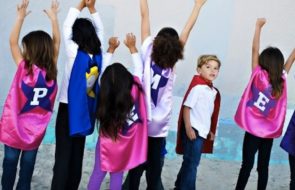In the first of a new series of blog posts by industry experts, Judy Bartkowiak draws on her vast experience of working with children and shows how to get the best results:
I have been running kids focus groups for so many years and before that I ran a Montessori Nursery School so as well as having hands-on experience of kids as a mum of four myself, I have worked with them for over 25 years. They can be absolutely great, hilariously funny, uniquely insightful and very direct.
Give kids time to think
For the most part kids want to be liked, they want to please you and they want to be right. So from a research point of view, no matter what we tell them at the beginning of a focus group about it being important for them to say what they think, that it doesn’t matter if they feel differently, they still want to say the right thing or nothing at all. This is very much an option. They do not feel that they have to ‘know’ as an adult might. If they don’t know what the ‘right’ answer is they will either clam up and look at their feet or they will say they don’t know. Neither of these are very helpful to us in a focus group. What tends to happen is that there will be someone who thinks they ‘do know’ and that saves the day for them, they can relax because someone else has piped up and saved them the trouble.
Where online focus groups have a huge opportunity is that we can’t see them ‘not knowing’ so they can relax and spend some time thinking about it. They can, once they’ve said something, read what the other group members have written and respond to that or it gives them a bit of an idea and they feel bold enough to say more. Because everyone writes separately they don’t have to worry about having to jump in and compete with other more confident kids, possibly older kids, they can take their time and have several goes at giving their views. They are at home, probably in their room and feel relaxed, secure and safe. It’s a good environment for them to think in and it is the environment in which they will probably consume the product too.
Keep them interested
Kids get bored quickly especially if you have a load of questions that don’t resonate with them. Topic guides often contain subjects the client is hugely interested in but this may not be of interest to the kids at all. They certainly aren’t going to tell you that you have no idea, they will just fidget and look around the room, trying to figure out who’s behind the mirror and whether their hair looks OK. The advantage you have with online is that you have a few days to achieve some rapport as you find out to begin with what the important factors actually are. You can then drill down to some gritty detail and they don’t mind because they’ve already told you what they think really matters.
If you really do have a client who insists on getting detailed background or behavioural data you can separate that into a survey monkey questionnaire and send it to them separately to complete online so that you keep it away from the nice little chat you’ve got going in the group itself.
Let kids express themselves in different ways
The other great way to engage with kids online is to ask them to take photos in store or send you links to websites they think are cool, get them to video themselves using the product, ask them to design a poster for the product and post the picture online to the group. You can get them to vote on things, try to persuade other kids in the group to switch brands, ask them to post images that remind them of the product (metaphors) in some way.
Kids have fantastic imagination and online enables them to use it. Just beware the wealth of data you get because once engaged they are unstoppable! Make sure clients realise that online really ought to cost much more than a focus group because each child is contributing about an hour’s worth of content so instead of an hour’s material divided by 6 in the group it is actually an hour multiplied by 6 in the online group. This is the minimum, then add on for analysis of any questionnaires, photos, videos, TATs (thematic apperception tests) and so on. Sadly, for some reason clients think online should be cheaper. Let’s hope this post disabuses them of this perception!
Judy Bartkowiak can be contacted at judy@kidsresearch.co.uk or on 01628 660618



